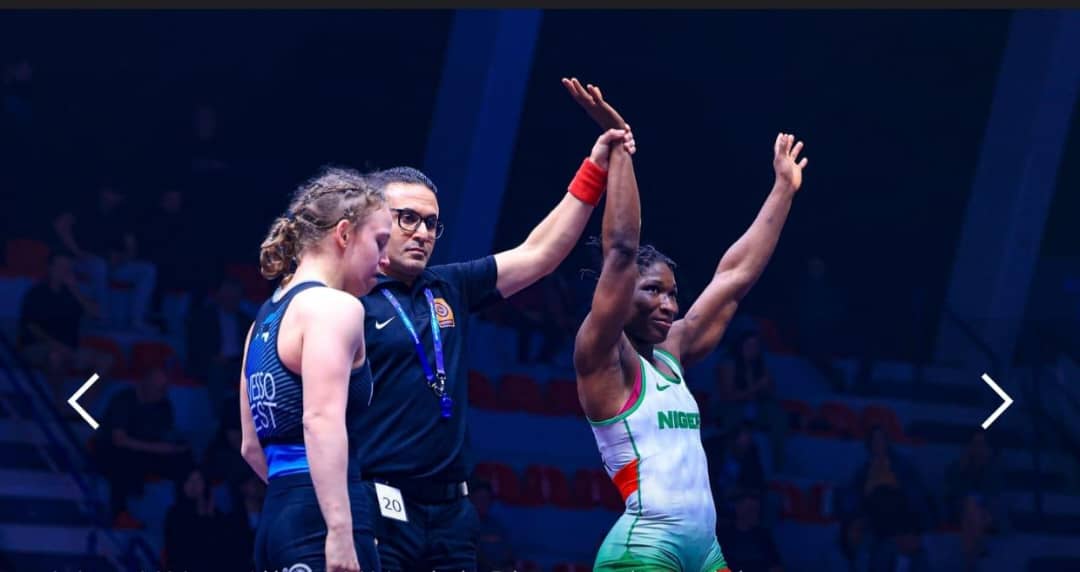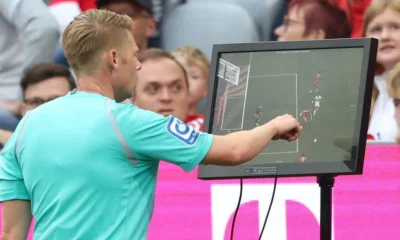More Sports
African Champion Esther Kolawole Wins Medal At U23 World Wrestling Championships In Albania

Reigning African champion Esther Kolawole has secured a bronze medal in the 62kg weight class at the 2024 u23 World Wrestling Championships in Tirana, Albania.
Kolawole in the 16th round, lost to USA Macey Kilty 3-3 on criteria.
However, the 2024 Paris Olympian in a Repachage match, defeated Tynys Dubek of Kazakhstan by a 10-0 superiority score, having beaten Venezuela’s Astrid Montero with same scoreline 10-0.
Undeterred, Esther Kolawole secured the bronze medal with an emphatic 10-0 superiority win over Viktoria Vesso of Estonia.
Reacting to the win in Albania, the President Nigeria Wrestling Federation, Hon. Daniel Igali applauded the motivated reaction of Esther Kolawole after she lost in the 16th round.
Daniel Igali, who, alongside Coach Akuh Purity, led Esther Kolawole to the championship, expressed confidence that the experience will shape her for future international events. “Esther was unlucky not be in the finals of this event. Our goal is to start the preparation for the 2028 Los Angeles Olympics in earnest. Getting on the podium at the U-23 world championships is a step towards that goal”.
Kolawale is expected to return back to Nigeria in readiness for the 3rd Gov. Diri National Championships from 5-9 November in Yenagoa.

-

 Premier League2 days ago
Premier League2 days agoArsenal Star Olivia Smith Stretchered Off In FA Cup Scare — What It Means For The Gunners
-

 LaLiga2 days ago
LaLiga2 days agoHansi Flick Explains Lamine Yamal’s Frustration After Barcelona Win
-

 News2 days ago
News2 days agoAngry Arne Slot Slams Liverpool’s ‘Worst Performance’ Despite Late Win At Nottingham Forest
-

 Local News2 days ago
Local News2 days agoAlex Iwobi Masterclass Powers Fulham Revival At Sunderland
-

 Local News2 days ago
Local News2 days agoNaija Stars Abroad: Goals, Grit And One Absence That Shook Istanbul
-

 Premier League2 days ago
Premier League2 days agoAlex Iwobi: The Manager’s Dream Lighting Up Fulham’s Season
-

 News11 hours ago
News11 hours agoNapoli Fan Hospitalised After Domestic Dispute Sparks Over VAR Decision
-

 News12 hours ago
News12 hours agoArsenal Star Eberechi Eze Leads Premier League Glam Squad At London Fashion Week



















